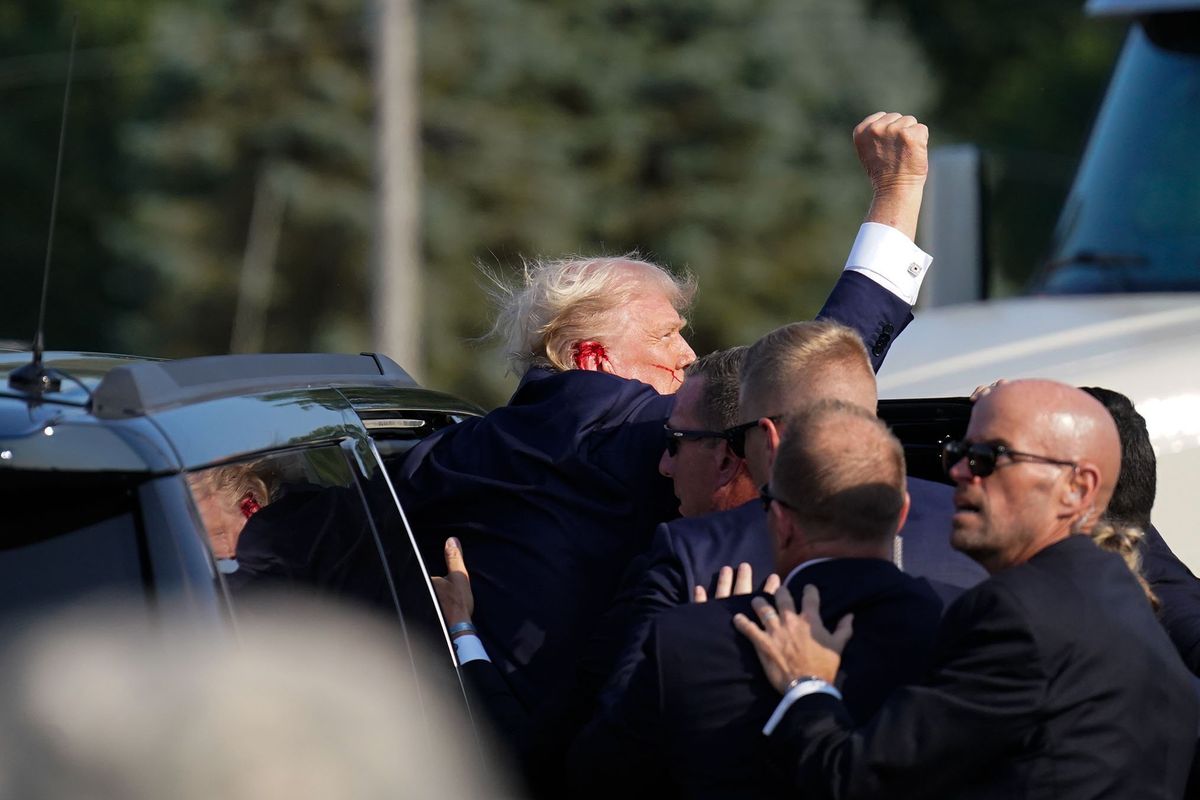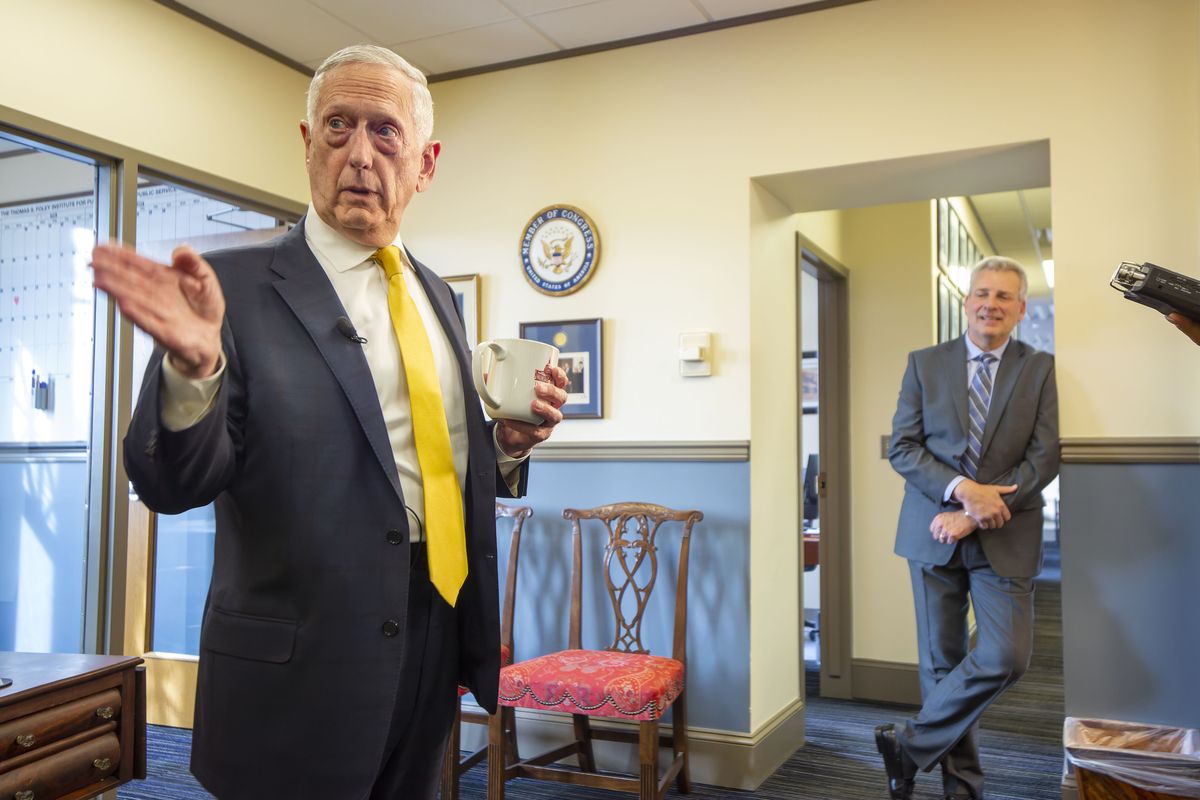WSU professor says assassination attempt is stark reminder that heated political rhetoric must cool
Members of Secret Service assist former president Donald Trump into a vehicle during a campaign rally for former President Donald Trump at Butler Farm Show Inc. on Saturday in Butler, Pa. (Jabin Botsford/Washington Post)
Saturday’s alleged assassination attempt of former President Donald Trump could be a moment of unity, for partisan politicians to ease back toward civility. Or it could just make things worse, said Cornell Clayton, director of the Thomas S. Foley Institute for Public Policy and Public Service at Washington State University.
“Like all Americans, I feel some shock,” he said. “But at the same time, I’m not that surprised, given the rhetoric in our campaigns now and between the partisans, it’s become increasingly violent, and we have, you know, two parties that have become very hostile towards each other.”
One of the Foley Institute’s goals is promoting civility and “combating political polarization.” Clayton said in the aftermath of the attack, leaders should return to “a more civil discourse.”
“Political leaders on both sides of the aisle could come out condemn the violence and really encourage their supporters to do so as well,” Clayton said.
He noted that President Joe Biden condemned the attack and reached out to Trump in the aftermath. And news reports said the two did speak Saturday evening.
“A lot will depend on how Trump responds to that overture, and whether he tries to reign in his supporters, who will undoubtedly blame Biden,” Clayton said. “That would be the best outcome, but I fear this will simply become another point of polarization with each side blaming each other for the state of our discourse.”
Clayton said he doubts the attack will affect the presidential race much in the long term.
“I’m sure we’re going to see a lot of recriminations,” Clayton said. “I mean, I’m guessing you’re already hearing some Republicans who will blame Biden supporters for the rhetoric directed at President Trump. I think you’ll probably hear Democrats come out and say, ‘Well, you know, given all the violent rhetoric that Donald Trump has used in his speeches and at rallies, the wind is now reaping the whirlwind,’ right? So I suspect this will become another point of polarization in our politics and with each side blaming the other.”
Clayton said a lot will depend upon Trump’s public response to the attack in the coming days, weeks and months.
“If he handles it the way Ronald Reagan did in the aftermath of the assassination attempt on him, and you saw a real moment of bipartisanship, I think that could certainly help him,” Clayton said. “If, on the other hand, he responds by blaming Democrats or blaming Biden, I don’t think it will help his campaign any.”
Clayton noted that the 1960s – when there were multiple assassinations of high-profile American leaders – was also a time of deep polarization.
“And before that it was around the turn of the 20th century when we had deep polarization and a long period of closely contested elections, much like we have today,” Clayton said.

